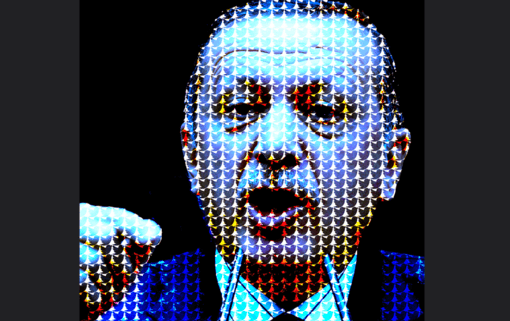
Photo by thierry ehrmann | CC BY 2.0
Turkish President Recep Tayyip Erdogan is threatening to follow up the capture of the Kurdish enclave of Afrin by launching an across-the-board military offensive against the remaining Kurdish-held areas in northern Syria and the main Yazidi population centre in the Sinjar region of Iraqi Kurdistan.
He claimed that the next target of Turkish troops would be the cities of Manbij, which the Kurdish People’s Protection Units (YPG) captured from Isis in 2016, and Kobani, which withstood a famous siege by Isis that ended in 2015. Unlike Afrin, both places are protected by the US Air Force, backed by 2,000 US specialised ground troops.
Mr Erdogan undoubtedly intends in the long term to eliminate the de facto Kurdish state that developed in northern and eastern Syria as the result of the advance of the YPG, backed by US air power, in the war against Isis. But it is unlikely that he will seek a confrontation with the US, which is sending out patrols of armoured vehicles into the front lines around Manbij, a strategically placed city between Aleppo and the Euphrates.
Speaking soon after the Turkish invasion of Afrin on 20 January, Gen Joseph Votel, commander of the US Central Command, said that withdrawing US forces from Manbij was “not something we are looking into”.
The Turkish leader threatened that his country’s troops could cross into Iraq to drive out Kurdish militants from Sinjar, if the Iraqi government did not oust them from there itself. The area is under the strong influence of the YPG, which intervened militarily in 2014 to protect the Yazidi community who were being massacred, raped and enslaved by Isis, which was then at the peak of its power.
The threat of a widening offensive against Syrian Kurdish forces is probably a manoeuvre by Mr Erdogan to divert attention from the situation in the Kurdish enclave of Afrin, which Turkish-backed forces captured on Sunday. There is a mass exodus of more than 200,000 people, according to a senior Kurdish official. “The people with cars are sleeping in the cars, the people without are sleeping under the trees with their children,” Hevi Mustafa, a top member of the Kurdish civil authority in the Afrin area, told a news agency.
The UN says that 98,000 recently displaced people from Afrin have registered with it at three centres outside the enclave. Another report said that 120,000 Kurds are not being allowed to enter Syrian government held territory and are unable to return to Afrin. The US State Department said it was “deeply concerned” by the humanitarian situation.
There may be less than meets the eye in a Turkish promise to leave Afrin once military operations are over. “We are not permanent there [in Afrin] and we are certainly not invaders,” said Bekir Bozdag, a deputy prime minister. “Our goal is to hand the region back to its real owners after clearing it of terrorists.” The reference to “real owners” may refer to a Turkish claim that many Arabs have been driven out of Afrin in the past and will now recover their homes, a form of enforced “re-Arabisation” that would take advantage of the flight of much of the Kurdish population. A Turkish military withdrawal, even if it took place, would not mean much because Turkey and Turkish-controlled territory surrounds Afrin on three sides and the Free Syrian Army (FSA) units, which would presumably stay in Afrin, take their orders from Turkey.
Turkish-led forces are carrying out widespread looting of government offices, shops and homes in Afrin as well as stealing vehicles, such as farm machinery, tractors and trailers according to the Syrian Observatory for Human Rights. It says that the looting and arrests are fuelling growing resentment among displaced people. Pictures from the area show tractors being driven away by uniformed militiamen.
The Kurdish YPG, which did not make a final stand in Manbij, says that it will revert to guerrilla warfare, something in which its commanders have great experience. But this may not be easy to do in a place like Afrin, which is isolated from the main Kurdish-held territory east of the Euphrates river. Guerrilla attacks are likely to provoke retaliation against the remaining Kurdish civilian population who might then leave Afrin and further open the door to ethnic cleansing.